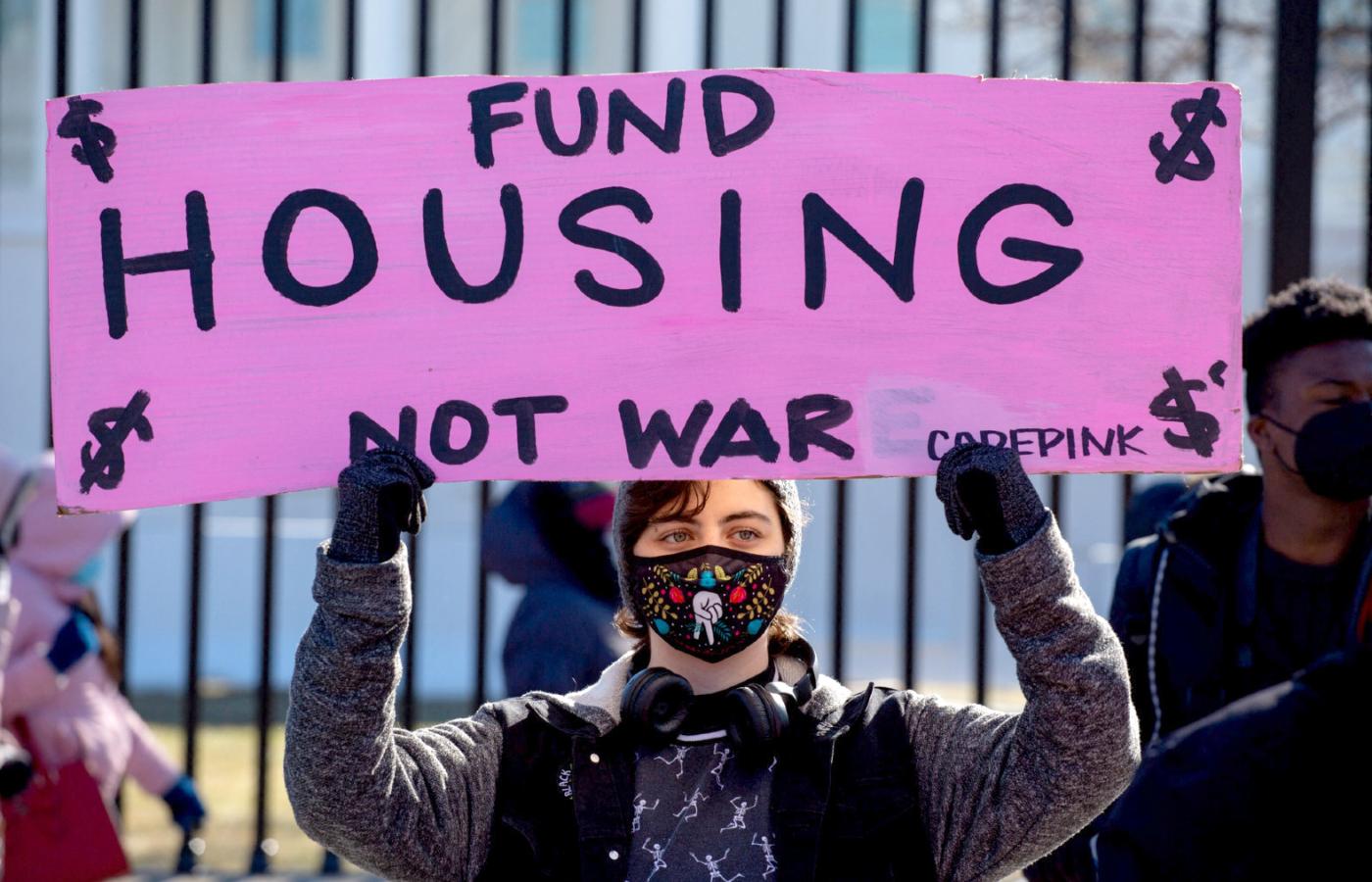
The latest poll shows there is a growing belief that Russia is America’s enemy. At the same time, support for helping Ukraine is waning, mainly among Republican voters, and, disconcertingly, among young people.
The latest poll by a renowned public opinion research center focusing on how Americans view the United States’ role in the world and its foreign policy confirms what other surveys and observers have said. According to the Pew Research Center, there is a growing belief that Russia is America’s adversary and weakening support for providing aid to Ukraine, particularly among Republican voters. The survey confirmed a growing disparity of opinion on international issues, as well as a significant degree of ignorance on this topic.
Fewer Americans Want To Help Ukraine
A survey conducted in April found that 61% of Americans today consider Russia an enemy of the U.S. — 20% more than before the attack on Ukraine in February 2022. Some 67% of Democrats and 58% of Republicans hold this opinion. Before the war in Ukraine, the largest percentage of Americans (49%) considered Russia a “rival,” and only 41% thought of Russa as the “enemy.”
Although 42% of Americans thought their country should increase aid to Ukraine in March 2022 one month after the Russian invasion, now nearly half of those people thinks so (24%). At the same time, the number of Americans who think the U.S. is helping Ukraine too much has dramatically increased from 7% in March 2022 to 31% today.
There is no national consensus on aid to Kyiv. According to 36% of respondents in the latest poll, people believe the aid is in the interest American security, but the same number of opponents of aid to Ukraine believe just the opposite, that it brings harm, and 24% of those surveyed are convinced that it has no bearing on security.
The issue of aid to Ukraine divides American society along party lines. Among Democratic Party voters or party sympathizers, 67% in total think the U.S. sufficiently helps the occupied country (31%), or that it should provide more help (36%). Meanwhile, 49% of Republican Party voters think there is too much aid, while 34% believe it is enough or too little. Republicans felt the opposite when the war began: 49% of those surveyed thought there was enough aid, while only 9% thought it was too much.
The measure of support for Ukraine is also a measure of its president, Volodymyr Zelenskyy. Sixty-five percent of Democrats express confidence in him compared to only 45% of Republicans.
America Is Getting Weaker; China, Russia, and Iran Are Growing Stronger
Americans are similarly divided when it comes to NATO, relations with Europe, and the role and position of the U.S. in the world. Some 75% of Democrats favor NATO compared to 43% of Republicans. Eighty-one percent of Democrats see the benefits of NATO membership, while only 51% of Republicans feel the same way. The vast majority of Americans agree that economic, trade, and military ties are important for strong U.S.-European relations. Ideological party sympathies line up differently, however, when it comes to the importance of a community of democratic values; 45% of Democrats consider it important for trans-Atlantic relations, compared to only 31% of Republicans.
Fifty-four percent of those responding to the Pew Research Center poll when asked about how they view America on the global stage said its influence is waning, while the position of Russia, China, and Iran is growing. This view is expressed by more Republicans than Democrats. Republican voters are also more likely than Democratic voters to think that key U.S. allies in Europe, like Germany and France, are growing weaker.
Ignorance Helps the Trumpists
You can hardly explain the partisan division and evolution of views on these issues except by the influence of propaganda disseminated by Donald Trump and the right-leaning press who support him. Those who believe the U.S. should pursue an active foreign policy, strengthen alliances, and support friendly nations tend to believe that helping Ukraine is in line with America’s security interests. For decades, the Republican Party was the party of Ronald Reagan, promoting active, “muscular” international policies in cooperation with allies. After the Republican Party came under Trump’s control, it has drifted toward isolationism. And anti-Ukrainian opinions among the party voters are already a clear result of the propaganda spread by the “America First” faction.
The Pew Research Center survey found that Americans’ ignorance helps shape their opinions this way. Only 56% of respondents could correctly identify which regions of the world NATO members belong to (Europe and North America). Only 41% knew that Ukraine is not a NATO member. And perhaps most disturbing is the fact that the youngest respondents, 18 to 29 years old, know the least about this — and they hold the opinion that the U.S. is helping Ukraine too much, more often than their parents and grandparents.

Leave a Reply
You must be logged in to post a comment.